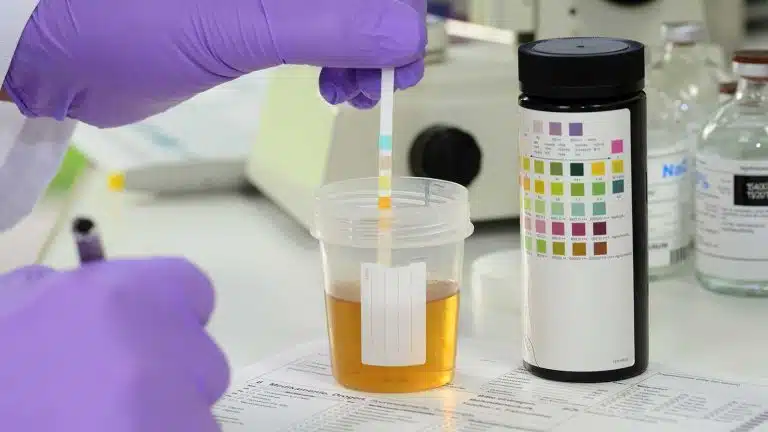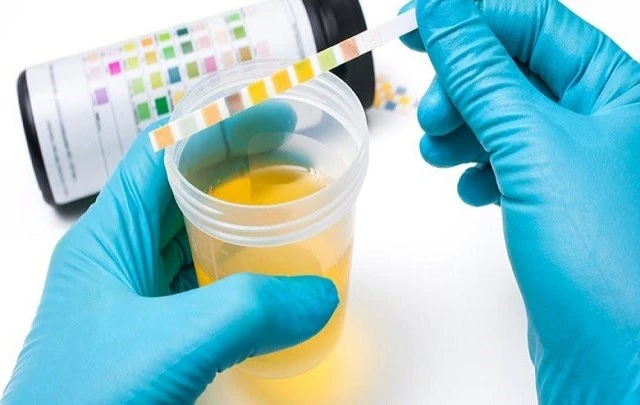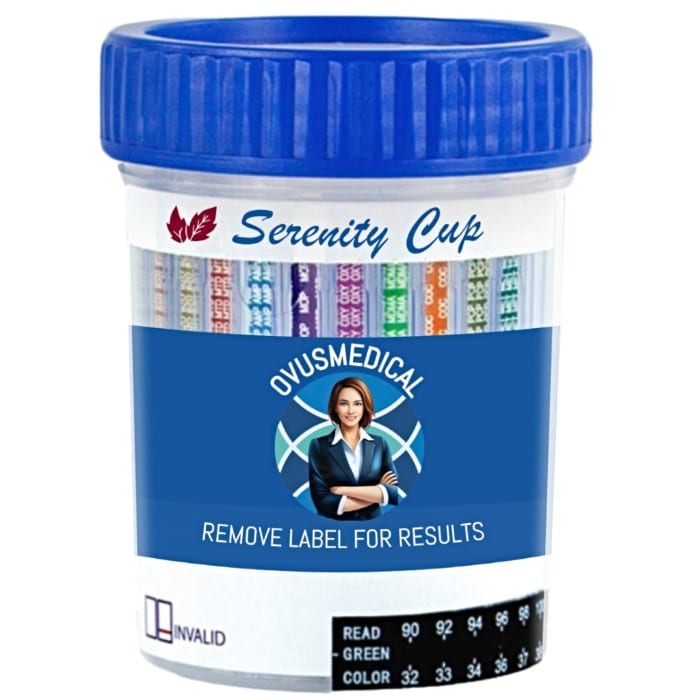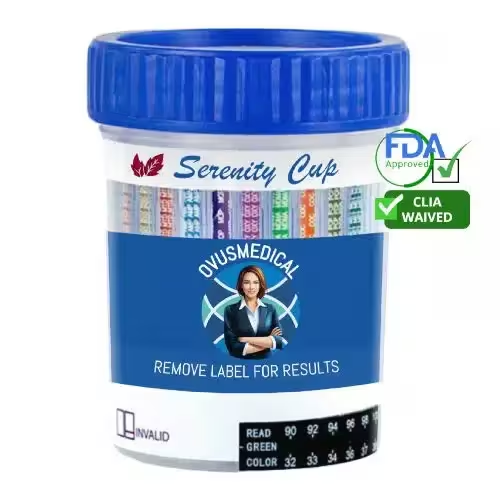Onsite urine drug testing is among the most valuable tools in the battle against drug abuse and in ensuring a drug-free workplace. These tests are only beneficial if the technology and process are accurate. Malingerers who try to hide drug usage know that firms’ single-cup urine tests are accurate. They submit fake or substandard urine samples to circumvent these tests. How to prevent diluted urine in urine drug test?
Ever noticed how the color of your urine changes throughout the day? This shift often tells you something about your hydration levels.
Diluted urine, typically pale or clear in appearance, is a condition where the urine has lower-than-normal concentrations of waste products. While it may seem harmless, it can sometimes indicate underlying issues or lead to complications. Understanding this phenomenon is crucial for promoting good health.
The Basics of Urine Composition
Urine is the body’s way of removing waste and maintaining a healthy fluid balance. Composed primarily of water (around 95%), it also contains urea, creatinine, salts, and other byproducts of metabolism. The kidneys play a central role in filtering these substances and ensuring proper urine concentration.
Factors influencing urine concentration include:
- Fluid intake.
- Physical activity.
- Environmental temperature.
- Medical conditions.
What Is Diluted Urine?
Diluted urine is urine that has a high water content and low concentration of solutes. This typically happens when the body has more water than it needs, leading to excess excretion through the urine. The condition is often identified by its pale or transparent appearance.

Causes of Diluted Urine
Excessive Water Consumption
Drinking large amounts of water in a short period can overwhelm the kidneys’ ability to balance fluids, causing dilution.
Medical Conditions
Conditions like diabetes insipidus affect the body’s ability to regulate fluid balance, leading to frequent urination and dilution.
Certain Medications
Diuretics, commonly prescribed for high blood pressure, encourage the body to expel water, resulting in diluted urine.
Intentional Manipulation
In drug testing, some individuals try to dilute their urine to avoid detection of substances. However, this often raises suspicion.
Symptoms and Indicators of Diluted Urine
The most obvious sign of diluted urine is its color—typically pale or clear. However, laboratory tests like urine specific gravity can provide a more accurate measure of dilution levels.
Risks Associated with Diluted Urine
While often benign, diluted urine can sometimes:
- Skew medical test results, leading to misdiagnoses.
- Cause depletion of essential nutrients and electrolytes.
- Increase the risk of overhydration or water intoxication, a potentially life-threatening condition.
How to Prevent Diluted Urine
Maintain Proper Hydration Levels
Follow hydration guidelines based on activity levels and climate. For most adults, 8-10 glasses of water per day are sufficient, but individual needs may vary.
Avoid Overhydration
Learn to recognize when you’re drinking too much water. Symptoms include bloating, nausea, and frequent clear urination.
Monitor Medical Conditions
If you have a condition affecting fluid balance, like diabetes insipidus, work closely with a healthcare provider to manage it effectively.
Testing and Diagnosing Diluted Urine
Understanding Urine Specific Gravity
Urine specific gravity is a test that measures the concentration of particles in urine. It provides insight into the kidneys’ ability to balance fluids and solutes. Normal ranges for specific gravity are between 1.005 and 1.030. Lower readings suggest dilution, while higher readings indicate concentration.
Importance of Urinalysis
Urinalysis, a comprehensive urine test, can identify the presence of abnormalities, including dilution. This test measures specific gravity, pH, proteins, glucose, and other markers, providing valuable data for diagnosis.
When to Seek Medical Advice
If you experience excessive thirst, frequent urination, or other symptoms of abnormal hydration, consult a healthcare professional. Chronic urine dilution without clear cause could indicate underlying conditions like diabetes insipidus or kidney issues.

The Role of Nutrition in Urine Concentration
Foods That Affect Urine Concentration
Certain foods influence urine concentration. For instance:
- Diuretic foods like watermelon and cucumber increase urine output.
- High-sodium diets can make urine more concentrated as the body retains water to balance salt levels.
Importance of Electrolytes
Electrolytes like sodium, potassium, and magnesium are critical for maintaining fluid balance. Replenishing electrolytes through diet or supplements can help prevent overhydration and maintain proper urine concentration.
Impact of Vitamins and Minerals
B vitamins and vitamin C can give urine a bright yellow color, often mistaken for concentration issues. Maintaining a balanced intake of these vitamins is essential for overall health.
Myths and Facts About Diluted Urine
Myth: Clear urine is always a sign of good hydration.
Fact: While clear urine often indicates hydration, persistent dilution can signal overhydration or a medical issue.
Myth: You can never drink too much water.
Fact: Overhydration is real and can lead to dangerous conditions like water intoxication.
Myth: Diluted urine is harmless.
Fact: While usually benign, it can obscure medical test results or signal underlying health problems.
You may also like…
-
13 Panel Drug Test w/ FYL
As Low As $2.39
Forensic Use Only
$3.19 Info & Price This product has multiple variants. The options may be chosen on the product page -
14 Panel Drug Test Cup PCP
As Low As $2.79
Forensic Use Only
$3.59 Info & Price This product has multiple variants. The options may be chosen on the product page -
10 Panel Drug Test Cup
As Low As $1.89
FDA/Clia Waived
$2.89 Info & Price This product has multiple variants. The options may be chosen on the product page
Diluted Urine: How do drug users use them?
A correctly performed pee test ensures that the patient cannot switch his urine sample with someone else’s. Proper supervision of sample-taking prevents fakers from adulterating samples by sneaking in tap water.
Fakers dilute their urine samples by consuming a lot of water before testing. This diluted urine sample could make standard drug testing unconvincing. These tests detect suspect drugs at certain concentrations that may not be achieved in diluted urine.
If the pee is too clear, testers may infer dilution. They may require the employee to provide another urine sample when it’s normal. Drug users have alternative techniques to pass a drug test.
They could resort to ingesting Vitamin B2 (riboflavin) prior to the test to add more color to the sample, or even take pharmaceutical preparations like creatine monohydrate or creatine ethyl ester to raise serum and creatinine levels in their diluted urine to normal, thereby making the urine sample seem legitimate. So the devious employee prepares for a drug test by drinking a lot of water and some of these supplements.
How to Prevent Diluted Urine Test?
Employers who want to keep ahead of possible drug users in their workforce are aware of these fraudulent techniques and have the equipment and testing processes to counter them. Urine testing strips can examine samples before drug tests. These tests can detect adulterants and sample dilutions. Some drug testing kits include pre-testing to ensure test validity.
Designing drug test collecting processes is also important to avoid employees from diluting the specimen. As much as the law or office policy allows, routine drug testing should not be mentioned in advance so employees can’t dilute and disguise their urine with supplements.
Check with the Ovus Medical website to learn about the best options available to your company in preventing defective drug testing due to urine dilution.
Conclusion
Diluted urine can offer insights into your health, acting as an indicator of hydration levels and potential medical issues. While it’s often a sign of adequate hydration, persistent dilution may require attention. By maintaining balanced hydration, monitoring your diet, and addressing any underlying conditions, you can ensure that your urine reflects optimal health.
FAQ
What color is diluted urine, and is it always a bad sign?
Diluted urine is usually pale or clear. It’s not always bad, but persistent dilution may indicate overhydration or an underlying condition.
Can dehydration cause diluted urine?
No, dehydration typically causes concentrated urine, which appears darker. Diluted urine is associated with excessive hydration or specific health conditions.
How much water is too much?
Drinking more than 3-4 liters per hour can overwhelm your kidneys, leading to water intoxication and diluted urine.
Are there medical tests to detect urine dilution?
Yes, urine specific gravity and urinalysis are common tests used to detect and analyze urine dilution.
Does coffee or tea dilute urine?
Coffee and tea have mild diuretic effects, which may temporarily increase urine output, but they do not directly dilute urine like excessive water consumption.




